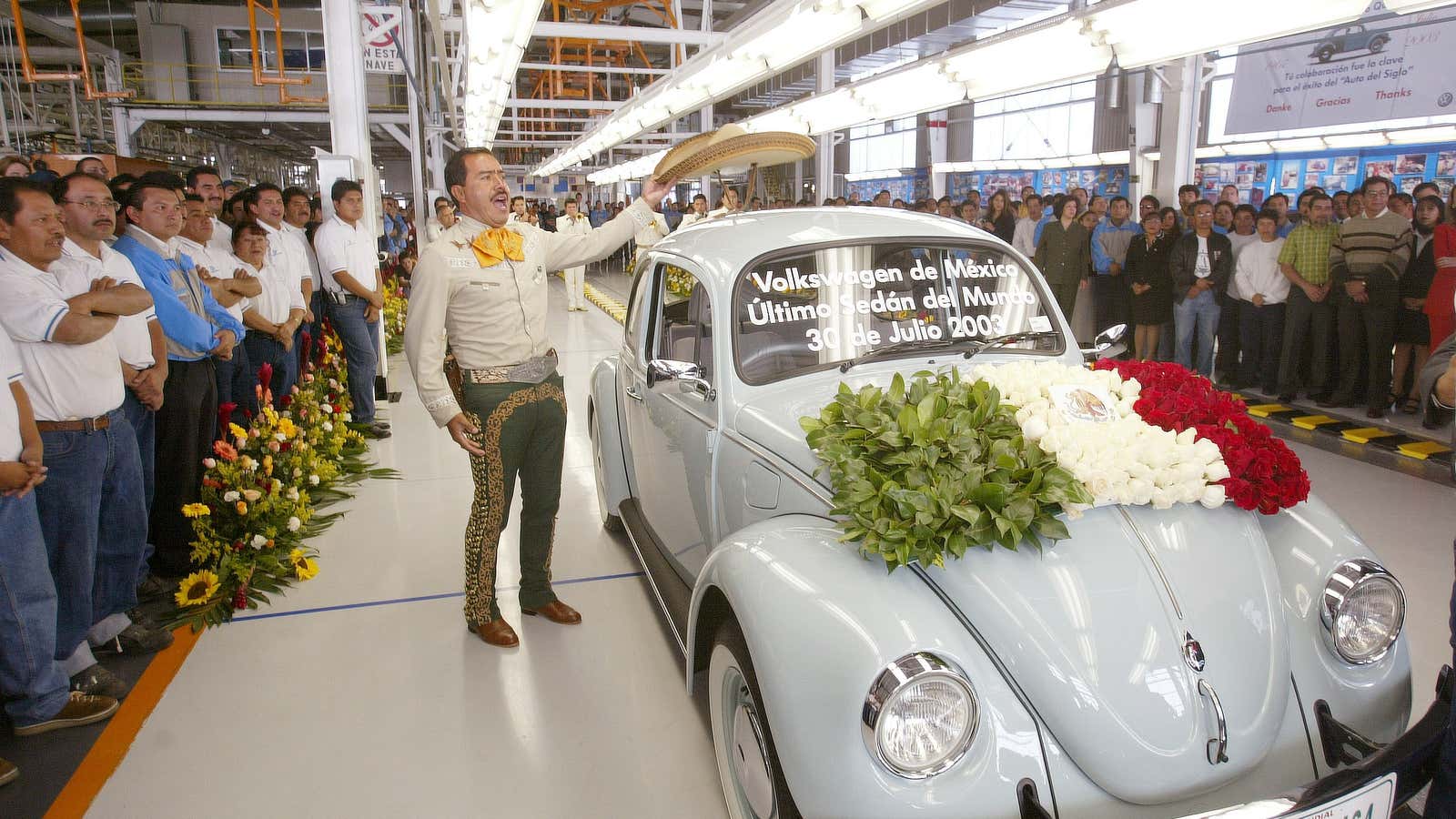VW is wise to the emotional power of its iconic past models. It announced in October that the I.D. Buzz electric camper-van concept—that looks like the beloved VW T1—would go into production for the US, China, and Europe in 2022.
Now Volkswagen chairman Herbert Diess has told Autocar that it is considering developing an electric version of the Beetle as part of their upcoming EV model lineup.
Diess said plans for an electric Beetle weren’t completely confirmed but added: “If we wanted to do a Beetle, electrically it would be much better than today’s model, much closer to history, because it could be rear-wheel drive.” In the company’s electric Bug plans, the electric motor would be mounted in the back of the car, providing drive to the back wheels.
The original Beetle—developed by Ferdinand Porsche on orders from Hitler to make a cheap “people’s car”— had a rear-mounted engine, leaving the front end free to use as trunk space.
Diess pointed out that the company’s modular electric-car platform allows VW the flexibility to create “emotional” concepts, noting that the “rear-mounted electric motor and rear-wheel-drive layout of the I.D. hatchback mirrors that of the original beetle in 1939.” The ID hatchback concept was unveiled at the Paris motor show last year.
Volkswagen is keen to move on from its diesel emissions cheating scandal and is investing heavily to ensure it’s a big player in the EV mass market. It announced in September that it would spend more than $24 billion on zero-emissions cars by 2030, and planned to offer an electric version of each of its 300 Volkswagen Group models by 2030.
It’s not the only German carmaker to create an electric version of a classic: BMW will launch its electric Mini in 2019.
